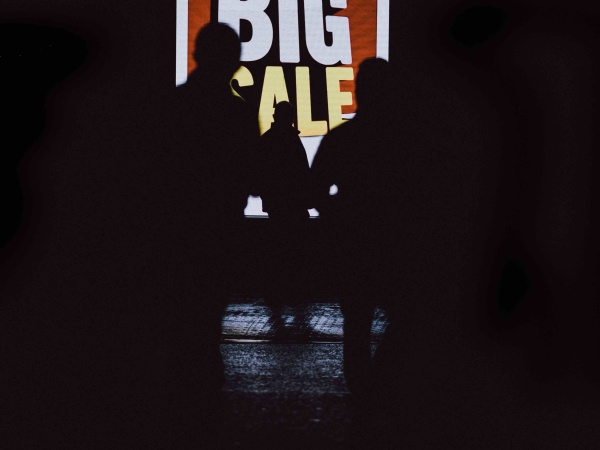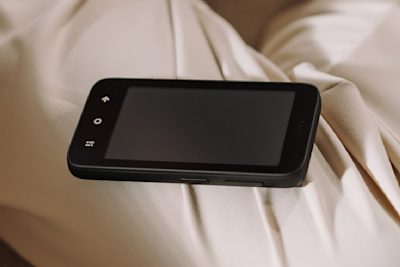
Mindfulness, Thanksgiving and Black Friday
Mudita values mindfulness, minimalism and living in the present moment. In doing so, we think that Thanksgiving is one of the most mindful holidays celebrated in the US and Canada. There are no presents to buy, no Santas or Easter Bunnies. People think about what they are thankful for, and while enjoying the present moment is difficult if you’ve burned the pie or Uncle Pete got inebriated, yet again everyone gathers each year on Thanksgiving.
This pure day of thanks is often spoiled by big brands promising low prices on items the very next day, Black Friday, and consumers demanding cheap prices and stocked shelves. Brands and retailers tend to prey on consumers who want more (savings, products, time or money), the performance of generous gifting among social circles, and mindlessness while shopping. Now, nearly every country boasts Black Friday sales.
Where did Black Friday come from?
Let’s begin with Thanksgiving.
Without getting into the pre-American history and the poor treatment of Native American Indians in the colonial era, let’s talk about the idea behind Thanksgiving Day. In schools, children learn that the first Thanksgiving took place in Plymouth, Massachusetts in 1621. It was a celebration of a successful harvest for the Wampanoag Indians, which helped the pilgrims survive. A harvest holiday in essence, the pilgrims feasted on food indigenous to the New England states, such as:
Vegetables, such as: corn, squashes, onions, beans, spinach and cabbage
Fruits, such as plums and blueberries
Seafood, such as: lobster, mussels, bass and oysters
Fowl, such as geese or swan, but not necessarily the turkey to which we are accustomed
But unfortunately:
No potatoes
The All-American modern Thanksgiving is celebrated by people of all religions, ethnicities, citizenships and other divisive backgrounds as they gather together to count their blessings. It is accompanied by a celebration, overindulgence of food (staples such as: turkey, mashed potatoes, green beans and cranberries) and an immoderate amount of drinks to wash it down. There is an American football game on TV, pies in the oven and autumnal decorations a plenty.
The main goal is to count your blessings and spend time with loved ones. Though not everyone enjoys spending time with family, bittersweet conveyance of the political arguments, drunken discussions and eating well beyond the aptly named ‘food coma’ are always reminisced the following week.
When you think back to the origin of Thanksgiving, pilgrims were celebrating a bountiful harvest and, thus, surviving. The pilgrims were thankful to the Wampanoag American Indians for the help and resources shared during the pilgrims first year in the New World.
By comparing the historic and modern Thanksgivings, there are several reasons that make it the most mindful holiday of them all.
The cornucopia is a symbol of Thanksgiving. Like your harvest or the brussels sprouts you really dislike, your family may have a few bad apples, but you are all together and healthy.
Live in the present by accepting what comes your way. You may have burned the pie, but in the end everyone will love it or have a great story to tell.
Be mindful. Whether your drive will take 5 hours or half an hour. By having a backup plan, you’ll be able to practice mindfulness instead of feeling the stress caused by a late arrival if a foot of snow falls.
Be thankful. Like the first pilgrims, be thankful for what you have.
The roots of Black Friday
Until the 1930s, the US Thanksgiving fell on the last Thursday in November. In 1939, succumbing the retailers demands for a longer winter holiday (Christmas, Haunakka, etc.) and eagerness to finally rid the nation of the Great Depression, Franklin D. Roosevelt moved Thanksgiving to the fourth Thursday of November, which is not always the last. Roosevelt’s actions satisfied market demands by lengthening the holiday shopping season, but also caused protests due to the sudden change of travel plans for Americans all over the nation.
The happiest time of the year, or the holiday winter season officially begins on the day after Thanksgiving. A day most people have off, except for store and food service employees. Many people use this 4-day weekend to start on their holiday shopping, preparations and decorations.
The first theory behind the name of Black Friday is a commonly used economy phrases. Some retailers finally made their first profit of the year on Friday after Thanksgiving, leading some to call it Black Friday, because being in the black meant earning a profit and in the red meant being in the negative. However, some say that the name Black Friday comes from 1960s Philadelphia. One particular Black Friday, police had a difficult day resolving traffic violations the day after Thanksgiving after a recent snowfall. However, the term wasn’t used until the 1980s, when the crowds were still containable.
As time progressed, retailers started using the phrase “Black Friday” as a way to attract more customers to their shops. Soon, discounters and big department stores continued the tradition of marketing Black Friday sales to attract entire families for holiday shopping.
By the 1990s, cars were mainstream and quaint family shopping trips had a cup of cold water thrown at them, as traffic, scuffles, and tempers flared on the day after a holiday. Stores were proudly using Black Friday deals to lure shoppers to their great bargains.
Image by HHHousman from Pixabay
The Evolution
The products advertised in the US on this day, are usually a fraction of their regular cost. In 2019, Target, a Minnesota-based nation-wide retailer, offers a 65” 4K Samsung Smart UHD HDR TV for $300 dollars off the regular prices of $899.99 or a Nikon D3500 DSLR camera for $399.99 instead of $849.99.
These items are considered special buys, which means each store will only have a few units. Doorbusters, on the other hand, are staple items that people have a better chance of acquiring, however, as always, quantities are limited. Unsurprisingly, to have the best chance of getting the items you want, it is common to line up hours before doors open, or even camp out.
Many countries around the world now have a day, or week, of ‘Black Friday’ discounts and sales. This marketing trick, borrowed from the other side of the pond, does not bring in nearly as high of a profit as it does in the US. There are of course several reasons, one of which is that Black Friday did not naturally evolve in these cultures, because it is an arbitrary day either before or after that countries winter holiday shopping season has begun. Secondly, many non-American retailers do not offer discounts as appealing as their counterparts in the US.
With over 165 million shoppers in the US during the Thanksgiving weekend, it isn’t surprising that not everyone gets what they wanted to buy. [1]
There were and will be a few who set alarms for 2 or 3AM and a few more facing freezing temperatures, so it comes as no surprise that some people turn to violence. The first injuries directly related to Black Friday occurred in 1998, when a shopper attacked a cashier (Michigan).[2] Ten years after the incident, the first fatalities happened when store employees were trampled in two different states, California and New York.[3] As of 2018, there have been 117 injuries and 12 deaths associated with the shopping day. [4]
Black Friday that lasts for the whole week
After stampedes and shooting started occurring on Black Friday, retailers wanted to provide shoppers with more time to shop and get the actual bargains. As stores started opening earlier and earlier, such as midnight on Friday or 7pm on Thanksgiving Day, the term Gray Thursday was coined. In 2019, reports show that 17 nation-wide stores in the US are open.[5]
As a response to Black Friday sales, advertisers attempted to create other thematic shopping days. In 2005, the first Cyber Monday encouraged people to buy products via the internet. Thirteen years later, online retailers earned $7.9 billion dollars on Cyber Monday.
While larger retailers were offering low prices on Black Friday, small businesses had little to no chance to compete. Five years after Cyber Monday was created, The first Small Business Saturday took place in 2010 and small businesses reported that there are larger sales due to this day.[6]
Anti Black Friday movement
Black Friday has become a new symbol of consumerism and aggressive marketing, that evolved from a day meant to be spent with friends and family. More and more brands, promoting a more conscious approach to buying, are now initiating an anti Black Friday movement.
In some countries, such as the US, UK or Finland there are annual anti-consumerist demonstrations promoting the Buy Nothing Day instead.[7] Other initiatives included e.g.: credit card cut-ups, that were supposed to free the shoppers from debt or “zombie walks'', where activists were appearing in large stores in groups impersonating the undead.
Consumerist and wasteful lifestyles are one of the main causes behind the climate crisis and fighting it demands that each one of us takes action. We encourage everyone to buy less, choose wisely and use one thing for as long as possible.
Is there anything you’d like to add, have we missed anything? If you’re interested in sharing your experiences with us or writing a guest post for us, send us an email via hello@mudita.com!
Please feel free to get in touch via social media (send us some photos or videos too), you can find us on Facebook, Twitter and Instagram, let’s connect! To learn more about Mudita, take a look at our website and our other posts.
If you enjoyed reading this article, please share and recommend it!
Related stories

Why an E Ink Phone Is the Smartest Choice for a Digital Detox
E Ink phones like Mudita Kompakt offer a smart middle ground for digital detox with essential features without the distractions of modern smartphones.

Sleep Tips: Preparing for Daylight Savings
Prepare for Daylight Savings with Mudita's expert sleep tips! Discover simple ways to improve sleep quality, enhance sleep hygiene, and wake up refreshed.

The Connection Between Self-Care and Mental Health
Tending to your own needs isn't selfish—it's the foundation upon which you can build a life of strength, resilience, and true fulfillment.
If you'd like to receive the best stories from our blog, keep up to date with our progress and get notified about our product releases and special discounts.